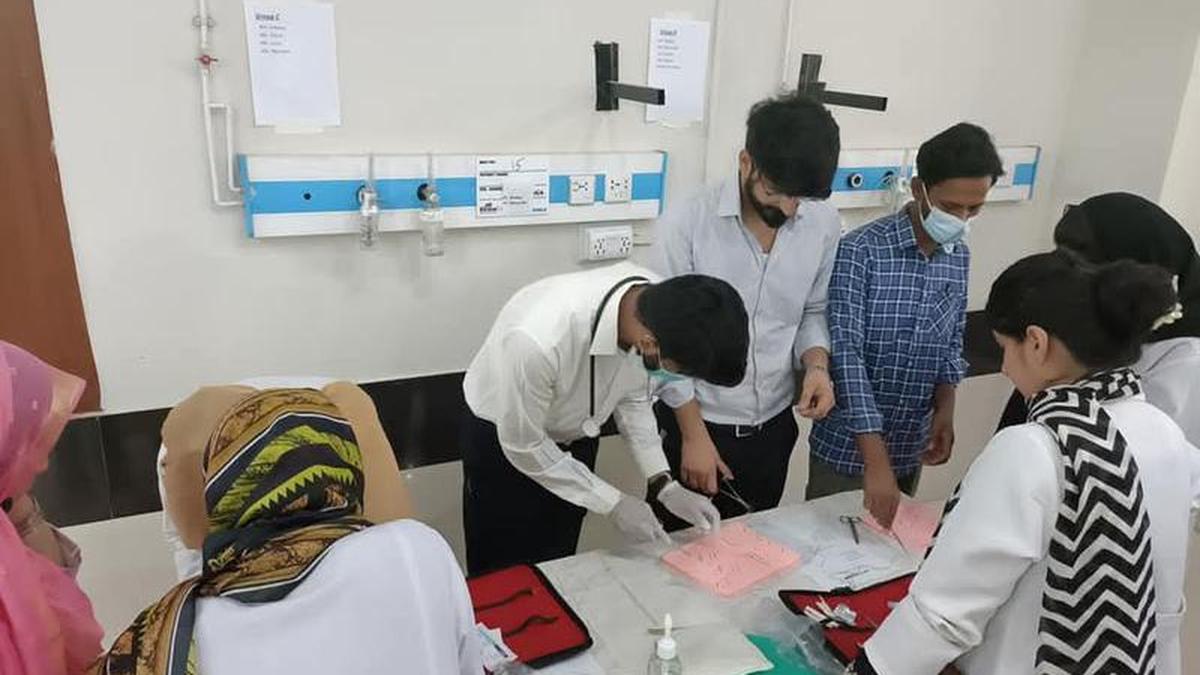
Kashmir’s medical graduates without a licence to practise
The Hindu
Sanat Nagar in Srinagar, Jammu & Kashmir, faces challenges as medical graduates from Pakistan await recognition in India.
Sanat Nagar is an upscale colony in Jammu & Kashmir’s capital city, Srinagar. The periphery of the locality stays abuzz through the day with eateries, where those in their 20s hang out, even in the State’s harsh winter.
With the iris starting to bloom on the walkways, a sign of spring, Nazia Akhter, 26, gingerly walks into one of the restaurants. She occupies a corner, to ensure that the conversation at the table is not overheard by people around. “I fear if I speak on record, it might impact my future and bring trouble to my family,” says Akhter. Like her batchmates, Akhter, who studied in one Srinagar’s Christian missionary schools, cannot prefix her name with ‘Dr.’, considered a prestigious symbol across India.
She is one of 256 students, of which 155 are women, who pursued their bachelor’s degrees in medicine, between 2014 and 2018 from Pakistan, and are yet to be recognised as doctors in India. The Ministry of Home Affairs (MHA) is scrutinising the credentials of all the students who pursued their MBBS or other degrees from colleges in Pakistan before 2018. Once this clearance comes through, the medical graduates will be eligible to take the Foreign Medical Graduates Examination, a test for those students with foreign degrees in medicine. When they clear this, they can be called doctors and practise freely.
The Pakistan degrees — MBBS, BDS, engineering, or any other — of those who joined courses after 2018, will not be considered, as per two separate orders in 2022. The National Medical Council (NMC) and the All India Council for Technical Education passed directives to this effect.
There were around 3,500 students from Kashmir, according to a parent-body estimate, who were studying in Pakistan when COVID-19 hit. Of these, around 700 were pursuing MBBS degrees. Many who secured admission between 2019-2022 were left with only one option: leaving Pakistan and forfeiting the fee paid.
The wait to wear a white coat
Akhtar joined a medical college in Pakistan’s Hyderabad in 2016 and returned in 2022, but her dream of wearing the white apron and stethoscope is fading, despite being from a batch before the cut-off period. Graduates say that the Ministry of External Affairs and the Ministry of Home Affairs (MHA) are carrying out intensive background checks. These have been both gruelling and without a seeming end.





















 Run 3 Space | Play Space Running Game
Run 3 Space | Play Space Running Game Traffic Jam 3D | Online Racing Game
Traffic Jam 3D | Online Racing Game Duck Hunt | Play Old Classic Game
Duck Hunt | Play Old Classic Game











